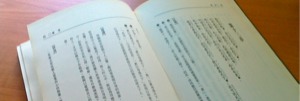 Tao is the fundamental concept of Taoism. In Chinese, it is written as 道, and can be literally translated as ‘the path’ or ‘the way’.
Tao is the fundamental concept of Taoism. In Chinese, it is written as 道, and can be literally translated as ‘the path’ or ‘the way’.
It is a very elusive concept, which is difficult to explain — especially when we have to do it in words alone.
What we may say is that it is the ultimate principle of the universe, embodied in all existence.
Going by this argument, the principles that govern the universe as a whole also govern any existence that we are familiar with. We can, therefore, find similarity in the relationship between the earth and the sun and that between husband and wife. We can also draw parallel between how a plant grows and the development of an organization.
- Tao & You
- Yin Yang
- Non-doing or Detachment, i.e. wuwei
- Being and Nonbeing
- Simplicity and tranquility in life
- Is Tao a religion
- Tao literature
Tao Teh Ching, or Dao De Ching (道德经), is the foremost text of Taoism, thought to be written by Lao Tsu 2,500 years in the ancient China. It is also known as Lao Tzu — name of the author.
Tao Te Ching has transcended historical and cultural confines. It is timeless and universal!
In China, it has been widely read by people over the centuries, from the ordinary folks, scholars to politicians; and exerted tremendous influence on the ways of life there; including the arts, from writing, painting and calligraphy to landscaping.
Since its introduction in the late 19th century, the work has been widely read in the West as well. It is believed to be the most translated work after Bible.
